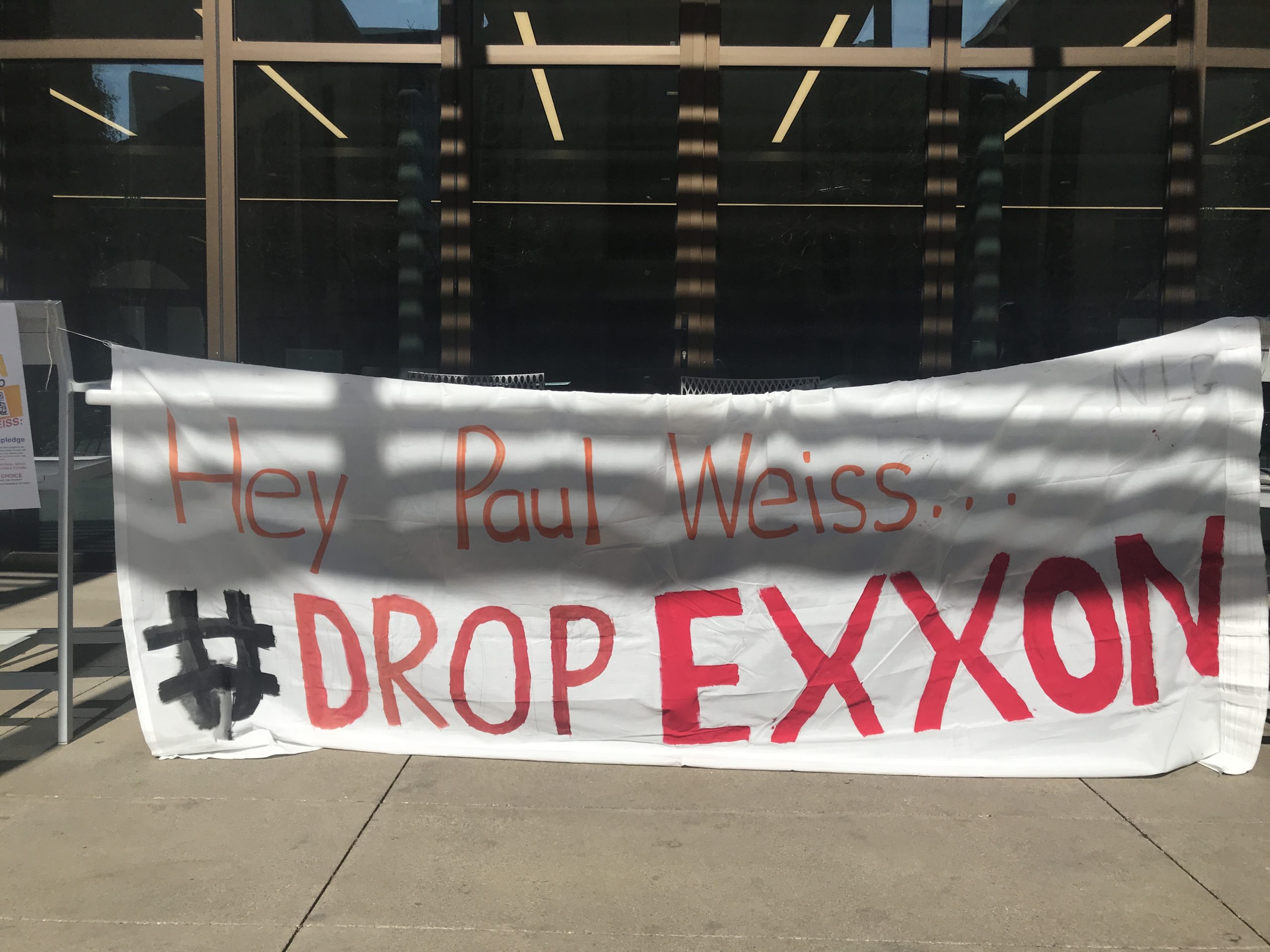A group of Stanford law students has pledged to refuse to work for or interview with Paul, Weiss, Rifkind, Wharton & Garrison LLP (Paul Weiss) until the corporate law firm drops its representation of ExxonMobil, according to a press release distributed Thursday.
More than 75 students signed the pledge on Thursday, joining law students across the country who disrupted Paul Weiss recruitment events at Harvard, Yale, New York University and University of Michigan law schools earlier this year. The firm, which charges some of the highest partner billing rates in the country, recruits summer associates at Stanford Law School every year.
“Law students across the county recognize that to work for a firm that represents Exxon in this manner is to work against our own future,” said first-year law student Ada Statler ’18. Statler is also a former editor-in-chief of The Daily. “We are making it clear that Paul Weiss’s continued representation of Exxon comes at the cost of some of the country’s top legal talent.”
ExxonMobil, a multinational oil and gas company, has come under fire after 2015 allegations that the company was aware of climate change as early as 1977, 11 years before it became a national issue. According to ExxonMobile’s website, these accusations are a “coordinated campaign” with the aim of “stigmatizing” the cooperation. It argues that the company’s understanding of climate change has “tracked the scientific consensus on climate change.”
Rex Tillerson, the former CEO of ExxonMobile and the former U.S. secretary of state under Donald Trump, has expressed doubt as to whether there is anything humans can do to combat climate change.
“With respect to our ability to influence it, I think that’s still an open question,” he said.
The fossil fuel giant has faced lawsuits from several organizations, counties and states, including New York and San Francisco, for fraud and misleading investors. In defense of these lawsuits, Paul Weiss has claimed that Exxon did “absolutely nothing wrong.”
“Exxon has known for decades that this issue has existential stakes,” said third-year law student Nicholas Eckenwiler. “But Exxon continues to profit from its pollution, even while a habitable planet hangs in the balance.”
In response to potential fears that the pledge contradicts universal access to representation, first-year law student Catherine Rocchi explained, “there is a world of difference between ensuring access to counsel for the most vulnerable members of our community” and “permitting a wealthy corporation to further tip the scales in its favor by hiring an army of corporate lawyers.”
Student activists at the law school say they aim to start a discussion among law students.
“As big firms like Paul Weiss aggressively recruit Stanford law students every year, we hope this demonstration will spark broader conversations about the ethical implications of working for firms that defend corporate polluters and other bad actors,” said third-year law student Julia Neusner.
Contact Emma Talley at emmat332 ‘at’ stanford.edu.
